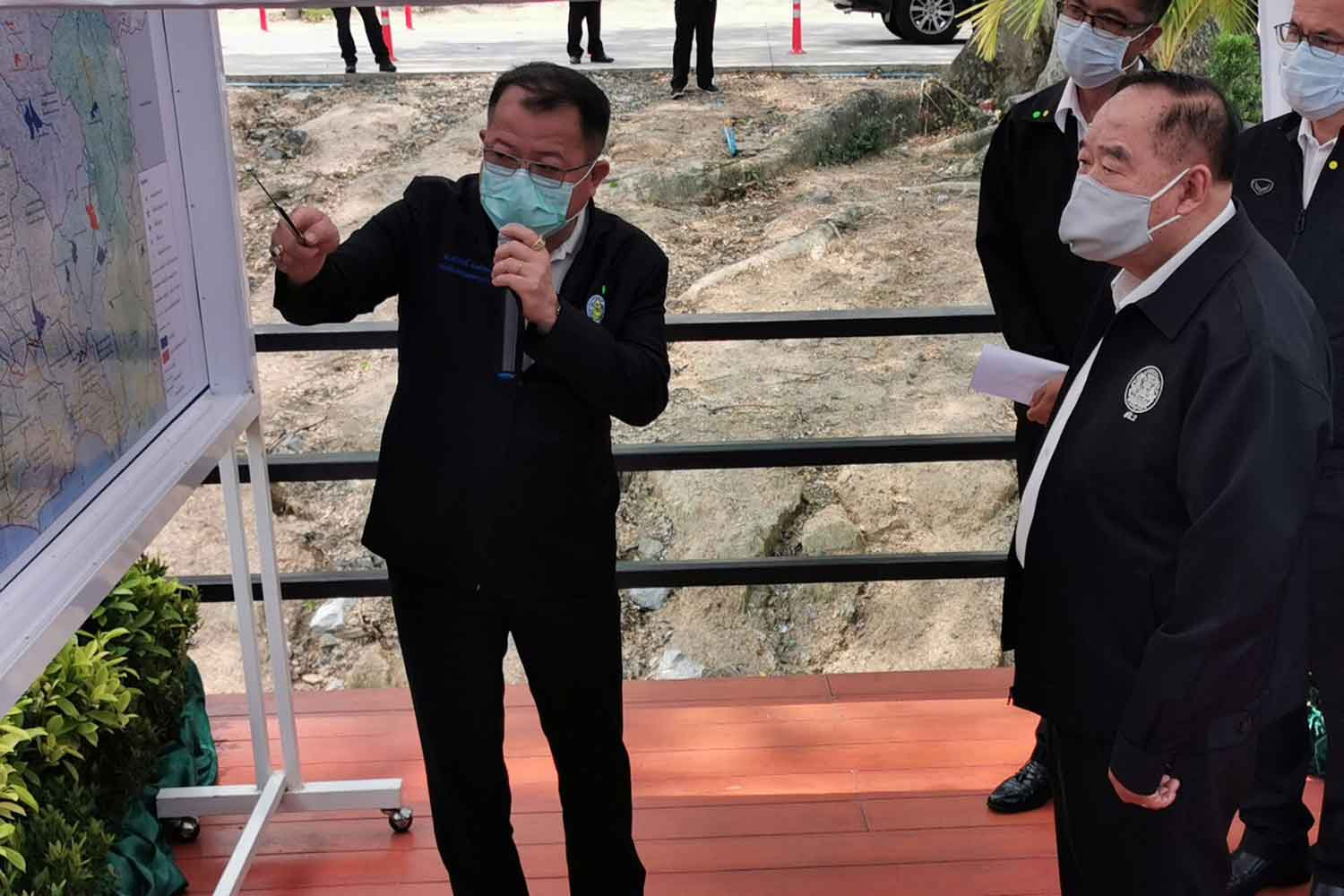
The government has assured households on the eastern seaboard that their taps will not run dry over coming months.
Industrial development in the Eastern Economic Corridor (EEC) has sparked rising demand for water in several eastern provinces.
Deputy Prime Minister Prawit Wongsuwon -- director of the country's Water Operation Command Centre -- told media that consumers will not run short despite low levels in reservoirs, because the government has prepared measures to solve a water shortage crisis forecast to worsen next month.
At 30% capacity, major reservoirs feeding the eastern seaboard have enough water to last until the end of June, but authorities are hoping rain in May will replenish stocks.
Gen Prawit said the government would extract 14 million cubic metres of water from old mining sites. The Royal Irrigation Department has also diverted 10 million cubic metres from a river in Chanthaburi province to replenish three reservoirs in Rayong and Chon Buri provinces.
"I would like to express my appreciation for Chanthaburi people's kindness in allocating water to neighbouring provinces. We need strong cooperation from all stakeholders to limit impacts," he said during an inspection of water management in Chon Buri province.
Water supply has become a major issue in the eastern seaboard provinces of Chon Buri, Rayong, Chanthaburi and Prachin Buri, as various sectors compete for bigger shares of supply.
After the government diverted water to feed the EEC's growing industrial sector, farmers are reportedly suffering.
Longan orchards in Chanthaburi have withered as water is diverted to feed the EEC. Longan farmers reported losses of 700 million baht this year. The damage to orchards is so severe that the cabinet on Tuesday approved 8 billion baht in compensation.
Meanwhile, Somkiat Prajamwong, secretary-general of the Office of the National Water Resources, said a draft law on water fee collection had passed through public hearings and would be submitted to the cabinet for approval. The draft law stipulates the commercial sector, including tourism and large farms, must pay water fees ranging from 0.40-4 baht per unit. Farms smaller than 66 rai will not have to pay for pumping water from public waterways.
